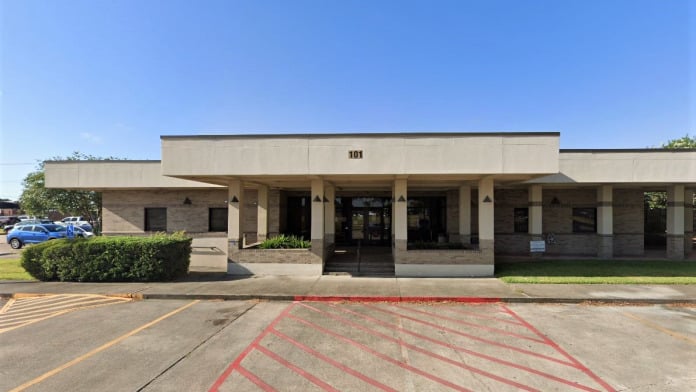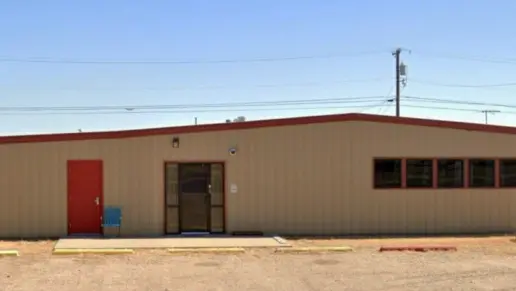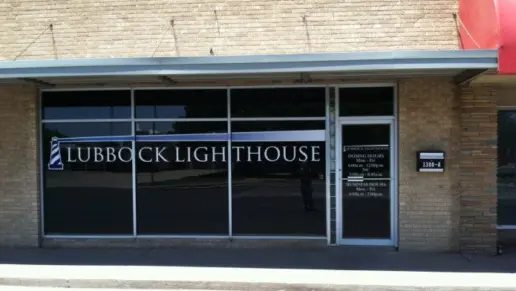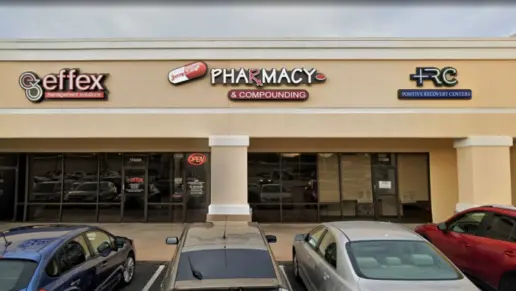I've been going here for quite awhile, hardly ever have any troubles. BUT, I had family emergency and needed to go out of town with my mom which was day of my appt. I called several days before and they said NOPE, if I changed appt couldn't call in my meds which I can't stop ...
About Gulf Coast Center Southern Brazoria Community Service Center
Southern Brazoria Community Service Center is part of the Gulf Coast Center network. You'll find 'em located out in Angleton, Texas. They provide mental health services and addiction treatment for people living in Galveston and Brazoria counties. Outpatient treatment (OP) is available for adults and active-duty military personnel.
They accept Medicaid, Medicare, private insurance, and self-pay options. For clients who don’t have insurance coverage, they offer a sliding scale fee program.
When you sign up, you’ll get a wide range out outpatient care. While they don’t offer residential treatment at this location, they can refer you to residential providers in Brazoria and Galveston counties through Signals of Society if your condition is acute.
Let’s see what they have to offer. Most clients go through a free screening to help figure out the right level of care. During the screening, you’ll get an assessment of your past history and risk factors. It’s a straightforward way to get started on finding the right support for you.
Treatment programs include individual and group counseling. Professional counselors put together individualized treatment plans to reflect your unique needs. During counseling, you’ll learn about how to manage addiction, including relapse prevention and sober living. Most outpatient group sessions take place over the phone or by video.
They’ll also connect you with local community resources like peer support. When you graduate, you’ll have your own network to prevent a relapse. That way, you won’t feel alone, and you’ll always have a sympathetic ear among those who understand what you’re going through.
One awesome feature is the Specialized Female Treatment program. Along with substance use support, they provide resources that address parenting and treatment issues unique to women. Plus, the program includes drug education for the whole family, focusing on children’s needs. It’s a supportive, holistic approach available to women 18 or older with dependent kids.
Latest Reviews
Rehab Score
Gallery

Location
Other Forms of Payment
Medicaid is a state based program that helps lower-income individuals and families pay for healthcare. Medicaid covers addiction treatment so those enrolled can use their coverage to pay for rehab. When a program accepts Medicaid the client often pays very little or nothing out of their own pocket.
Private insurance refers to any kind of healthcare coverage that isn't from the state or federal government. This includes individual and family plans offered by an employer or purchased from the Insurance Marketplace. Every plan will have different requirements and out of pocket costs so be sure to get the full details before you start treatment.
Self-pay involves paying for treatment out of your own pocket. You can use savings or credit, get a personal loan, or receive help from family and friends to fund your treatment. If you don't have insurance or your insurance plan doesn't cover a specific program, self-pay can help ensure you still get the care you need.
Financial aid can take many forms. Centers may have grants or scholarships available to clients who meet eligibility requirements. Programs that receive SAMHSA grants may have financial aid available for those who need treatment as well. Grants and scholarships can help you pai for treatment without having to repay.
Sliding scale payments are based on a client's income and family size. The goal is to make treatment affordable to everyone. By taking these factors into account, addiction recovery care providers help ensure that your treatment does not become a financial burden to you or your family, eliminating one barrier to care.
Military members, veterans, and eligible dependents have access to specific insurance programs that help them get the care they need. TRICARE and VA insurance can help you access low cost or no cost addiction and mental health treatment. Programs that accept military insurance often have targeted treatment focused on the unique challenges military members, veterans, and their families face.
Medicare is a federal program that provides health insurance for those 65 and older. It also serves people under 65 with chronic and disabling health challenges. To use Medicare for addiction treatment you need to find a program that accepts Medicare and is in network with your plan. Out of pocket costs and preauthorization requirements vary, so always check with your provider.
Addiction Treatments
Levels of Care
Treatments
The goal of treatment for alcoholism is abstinence. Those with poor social support, poor motivation, or psychiatric disorders tend to relapse within a few years of treatment. For these people, success is measured by longer periods of abstinence, reduced use of alcohol, better health, and improved social functioning. Recovery and Maintenance are usually based on 12 step programs and AA meetings.
During rehab in Texas, you'll deal with underlying issues that contribute to addiction. By addressing these challenges and learning healthy ways to cope with them, you'll develop strategies that help you live a drug-free lifestyle.
A combined mental health and substance abuse rehab has the staff and resources available to handle individuals with both mental health and substance abuse issues. It can be challenging to determine where a specific symptom stems from (a mental health issue or an issue related to substance abuse), so mental health and substance abuse professionals are helpful in detangling symptoms and keeping treatment on track.
Opioid rehabs specialize in supporting those recovering from opioid addiction. They treat those suffering from addiction to illegal opioids like heroin, as well as prescription drugs like oxycodone. These centers typically combine both physical as well as mental and emotional support to help stop addiction. Physical support often includes medical detox and subsequent medical support (including medication), and mental support includes in-depth therapy to address the underlying causes of addiction.
Programs


Clinical Services
Group therapy is any therapeutic work that happens in a group (not one-on-one). There are a number of different group therapy modalities, including support groups, experiential therapy, psycho-education, and more. Group therapy involves treatment as well as processing interaction between group members.
In individual therapy, a patient meets one-on-one with a trained psychologist or counselor. Therapy is a pivotal part of effective substance abuse treatment, as it often covers root causes of addiction, including challenges faced by the patient in their social, family, and work/school life.
Contact Information
101 Tigner St
Angleton, TX 77515


